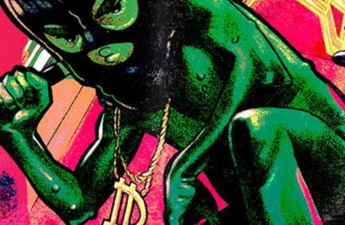Decentralized social media app Friend.tech has exploded in popularity. Part crypto trading, part Rally, with wisps of Klout and Empire Avenue mixed in, the former Stealcam is now the third biggest cryptocurrency protocol just ten days after launching. Long enough for may to be asking, how long will it last?
The Twitter-linked crypto app, which lets users buy and sell shares of their friends’ social media profiles, has racked up $1.42 million in fees in just 24 hours, according to DeFi Llama. Since its launch, the total amount generated in protocol fees is fast closing in on $3 billion.
That puts it third place behind Lido, the decentralized platform for liquid staking, and the Ethereum blockchain—the second biggest crypto project after Bitcoin.
Built on the Coinbase-incubated Ethereum layer-2 Base, Friend.tech has attracted so many users, it is struggling under excessive traffic. How could something that seemingly sprung out of nowhere—apart from the announcement of its pivot to a social token platform for creators in May—be doing so well?
The mobile-only platform links to Twitter accounts and tokenizes them. Users who buy “keys” to another account gain exclusive access to that user’s private chat room—and ostensibly the value of that user’s token, whether it rises or falls.
People seem to like the idea. According to Dune analytics data, the app has seen a total volume of 36,260 Ethereum, or about $60.6 million, via 1.4 million transactions.
The speed with which people have signed up for the app shows that there is a demand for a “social token” platform. Friend.tech has said that 100 million points will be distributed over the next six months and airdrops will happen every Friday.
High-profile users include crypto influencers and even celebrities like NBA star Grayson Allen who are keen to snap up the points.
But some are publicly skeptical, claiming that the protocol functions like a Ponzi scheme and will eventually come crashing down.
If someone can please fill me in, how is #friendTech not a clear as day Ponzi? You buy and if more people buy that group it goes up. The only way to appreciate is more people coming in, with the inevitability of a load of bag holders. What am I missing? pic.twitter.com/NyXvpo1pyT
— TheChartGuys (@ChartGuys) August 21, 2023
The charge is that when the hype cycle fades, people may rush to sell shares and, in turn, cause a mass panic. The rate at which share prices have shot up could also speed their descent when the selling starts.
“How is Friend.tech not a clear-as-day Ponzi?” asked market analyst @ChartGuys. “You buy and if more people buy that group it goes up—the only way to appreciate is more people coming in, with the inevitability of a load of bag holders.”
Meanwhile, NFT personality Beanie said on Twitter that he’s seen it before, and it “ends in mass carnage.”
Every couple years in crypto somebody reintroduces an elaborate ponzi with a bonding curve. And there’s always some group of influencers that rave about it being “the new paradigm”. No pun intended. You’re already getting frontrun by bots making it -ev. This ends in mass carnage.
— Beanie (@beaniemaxi) August 21, 2023
“Every couple years in crypto somebody reintroduces an elaborate ponzi with a bonding curve,” he said. “And there’s always some group of influencers that rave about it being ‘the new paradigm.’”
Trader Alex Wice, meanwhile, said in a lengthy post that it would likely fail because there is no real incentive for users to stick around—unlike other social platforms like OnlyFans, which has a subscriber base providing recurring revenue.
He claimed that Friend.tech has “a thin veneer of purported value” and people would soon sell their shares and cash out.
And Bitcoin commentator Yazan pointed out how easy it was for him to make money “from doing literally nothing from less than 10 people” and claimed it was a “pump and dump.”
Friend.tech did not immediately respond to Decrypt’s request for comment.
Stay on top of crypto news, get daily updates in your inbox.
Source: https://decrypt.co/153248/friend-tech-is-cryptos-latest-obsession-but-critics-say-this-ponzi-wont-end-well




